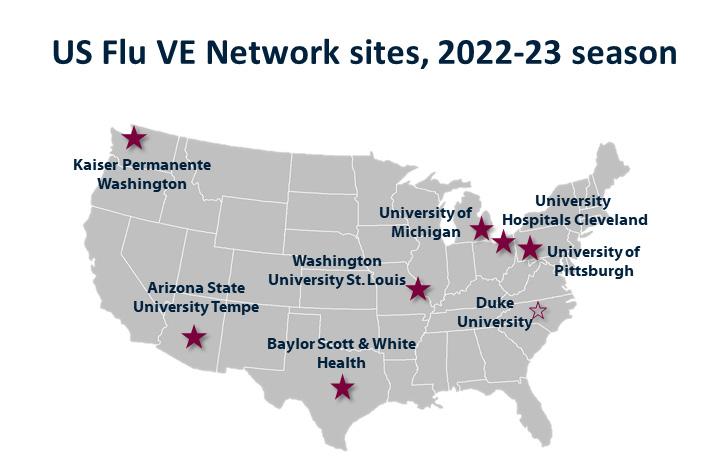
DHVI receives $4.9 million grant from CDC to serve seven U.S. sites
The Center for Disease Control’s National Center for Immunization and Respiratory Diseases has awarded the Duke Human Vaccine Institute $4.9 million for a five-year period. The DHVI will support the CDC and a network of seven study sites as part of the U.S. Flu Vaccine Effectiveness network which is designed to measure how well a vaccine works in the real world depending on age and virus types. As the Network Coordinating Center (NCC), the DHVI will provide many services, including project management, statistical support, network communications, data management, protocols and standard operating procedures development, and regulatory support to assure human subjects protections and good clinical practice.
“This work is significant because it informs us as to how well our current recommended vaccines are working. Given the current triple-demic of COVID-19, influenza and respiratory syncytial virus (RSV), information provided can help guide future decisions about what strains or variants of viruses should be included in the next season or iteration of these vaccines to combat at least two of these three pathogens which can affect the respiratory tract in a similar manner,” says Dr. Emmanuel “Chip” Walter, chief medical officer at the DHVI. Walter is very familiar with testing vaccine effectiveness as the director of the Duke Vaccine and Trials Unit (DVTU). Among his many accomplishments, he led the first ever Pfizer COVID-19 vaccine trial in children under 12.
Dating back to 2004, the network has provided yearly estimates of how well the seasonal influenza vaccine protects the U.S. population. Effectiveness is usually measured for the different types of flu viruses, A or B, and the subtypes of influenza A viruses, H1N1 or H3N2. In addition, effectiveness is reported for different age groups. More recently, the network has been leveraged to assess the effectiveness of COVID-19 vaccines. In the future, the network could potentially be utilized to assess the effectiveness of new respiratory virus vaccines.
The DHVI’s grant with the CDC as part of the U.S. Flu VE network lasts five years, beginning in September 2022 and concluding in September 2027.